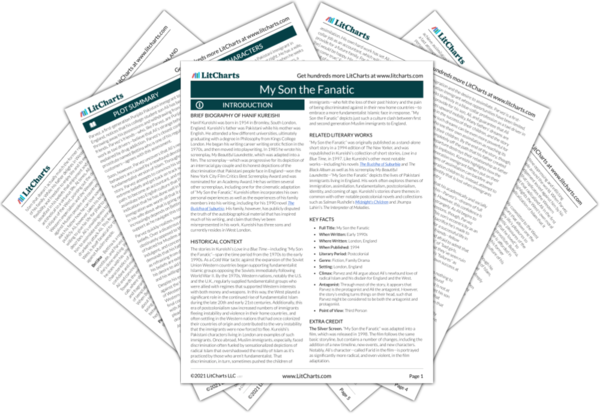Throughout the story, beards represent both Ali’s commitment to his Islamic beliefs, as well as Parvez’s desperate attempts to bridge the widening gap between him and his son. After Parvez’s friends convince him that Ali’s new behavior could be explained by drug abuse, Parvez goes on the lookout for physical changes in Ali that might indicate addiction. The only physical change that he notices, however, is that Ali has started growing a beard. The beard symbolizes Ali’s growing belief in a fundamentalist version of Islam, which Parvez only uncovers later. After finally discovering what is going on with Ali, and right before he goes to bed after their first long and heated argument about Ali’s new beliefs, Ali asks his father “why he didn’t have a beard, or at least a moustache.” He wants his father to wear at least this one symbol of Islam. Parvez is fiercely opposed to Ali’s demands and beliefs, but he is also desperate to bridge the gap widening between him and Ali, which is putting him at risk of losing his son entirely. Therefore, he decides to grow a beard. As the two sit down to their second argument about Ali’s beliefs, Parvez hopes that Ali will compliment his growing beard, and recognize it as an attempt to concede to at least one of his beliefs. But Ali doesn’t notice the beard at all, suggesting that Ali is only interested in full-on devotion to his own ideas about Islam and not his father’s less stringent efforts that he nonetheless hopes will help him bridge the divide between him and his son.








